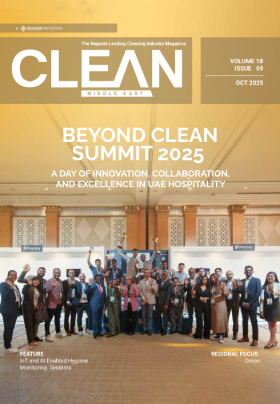
Climate change is a global issue that is affecting communities, lives, businesses and economies all over the world. The World Economic Forum has urged governments, business and people to act immediately as climate action failure has become a top global risk.
Carbon dioxide emissions have increased by almost 50 per cent globally since 1990. Certainly, this is having a notable impact on our climate.
Climate change also affects the hospitality sector. Extreme weather is increasing the cost of operations and reducing the number of tourists visiting certain destinations, while local and national environmental policies and penalties are being introduced in cities and countries around the world.
The tourism accounts for around 5% of global carbon emissions and this is set to increase. Hospitality, like other industries, has a responsibility to manage its impact on our planet. The hotel and tourism industry not only produce large amounts of waste and carbon dioxide, which contributes to climate change, but also consumes a lot of energy and water.
Every hotel around the world must move towards having a net positive impact on the environment. Starting to implement long-term sustainable practices that lessen the effects of waste production and environmental pollution is a serious must.
It’s interesting to know that sustainability is addressed as an emotional benefit of travel and appears as an underlying personal value when one decides upon their travel destination.
Sustainability that impacts the customer experience can be a driving force for booking a certain destination. Most travelers express positive attitudes toward sustainability, but often seem unwilling to dish out extra money. To overcome the sustainability paradox, tourism and hospitality practitioners should design sustainable initiatives to be fun, engaging and beneficial to tourists.
Communicating the measurable impact of tourists’ sustainable behavior, and offering incentives to encourage sustainable habits may help develop more sustainable tourist engagement and improve brand image. Encourage your customers to boast about the outcomes of their sustainable endeavors to their Instagram and TikTok followers.
The future of the tourism industry depends on protecting the unique and desirable locations in which hotels are based. Hotels can design a pathway and drive change by:
- Start: Simple environmental actions
- Advance: Robust environmental actions
- Accelerate: Net zero impacts for the planet
- Lead: Net positive impacts for the planet
 Each stage of the pathway guides through four simple steps:
Each stage of the pathway guides through four simple steps:
- Take inventory: Understand environmental impacts and risks and benchmark against peers
- Set goals: Ensure they are both reasonable and stretching
- Plan and follow through: Gathering resources and implementing initiatives to achieve objectives.
- Review and report: Monitor progress to understand achievements, challenges and learnings.
About the author:
Tatjana Ahmed is the Director of Housekeeping at Grand Hyatt Dubai and Chairperson of the UAE Housekeepers Group.

.jpg)
.jpg)
 Search
Search.jpg)
